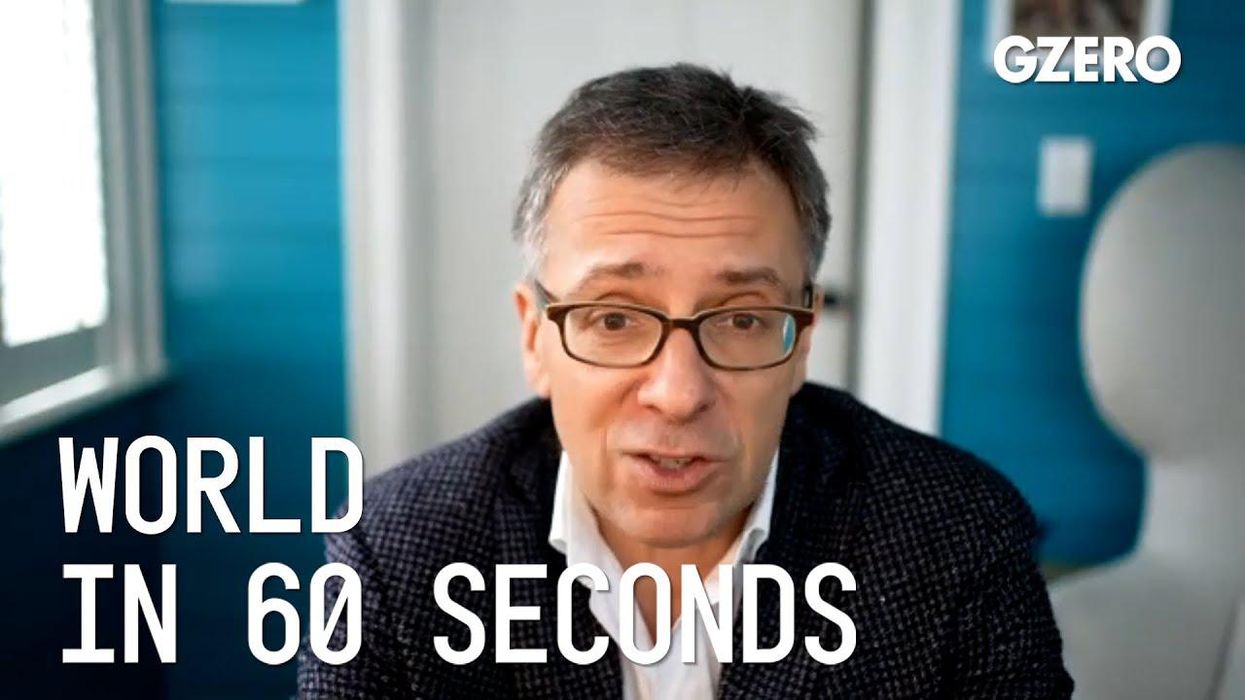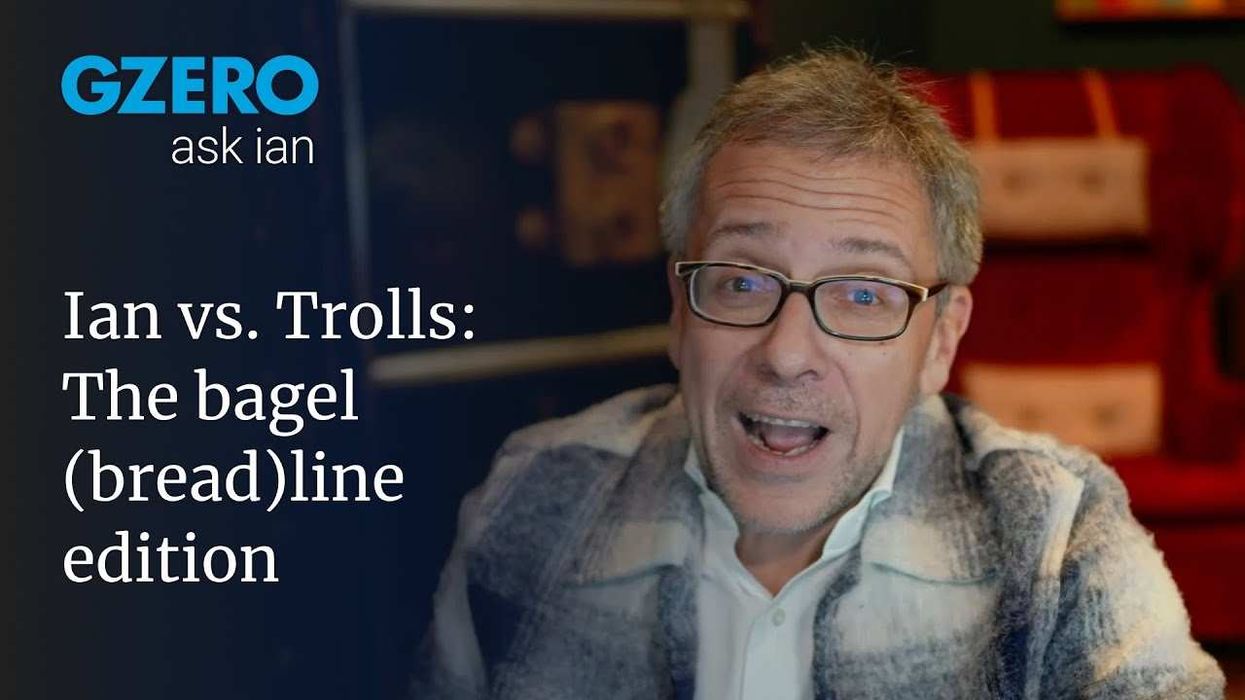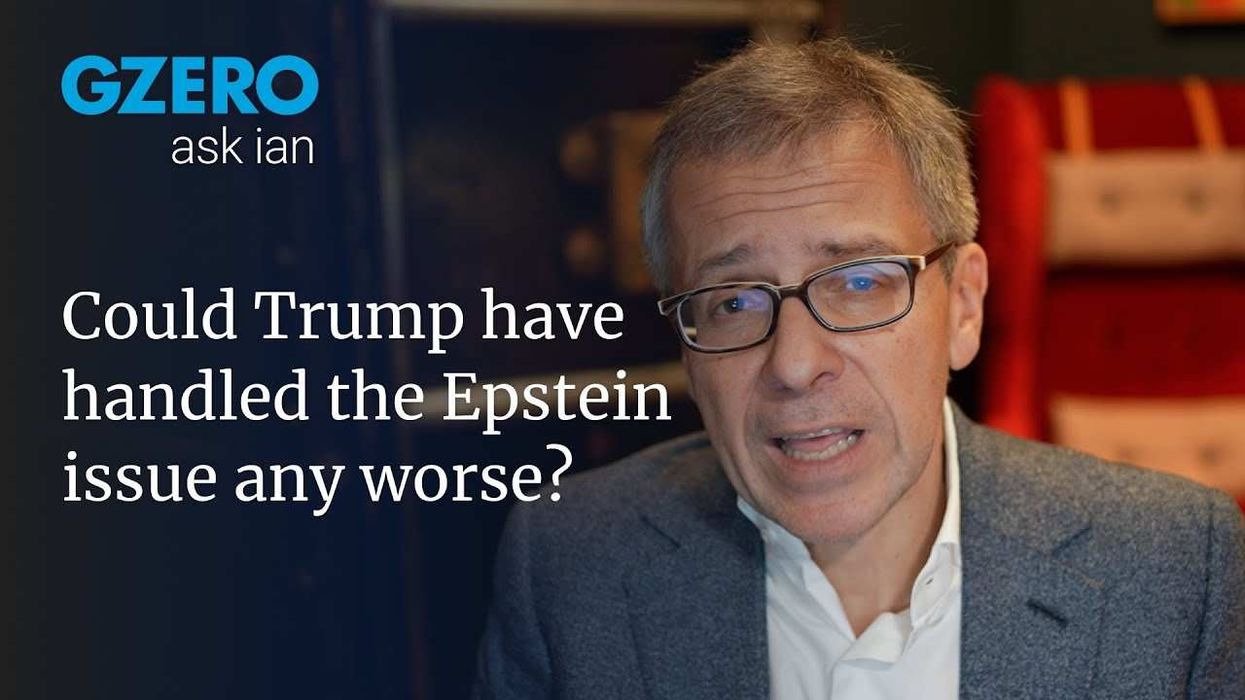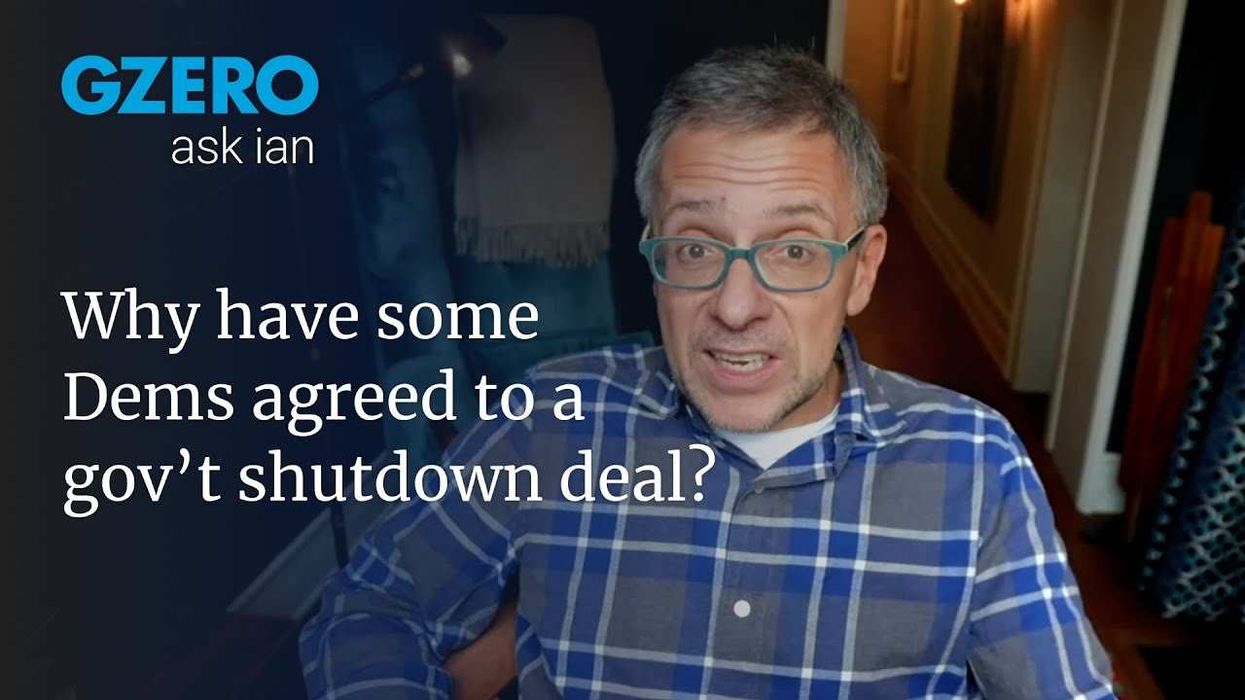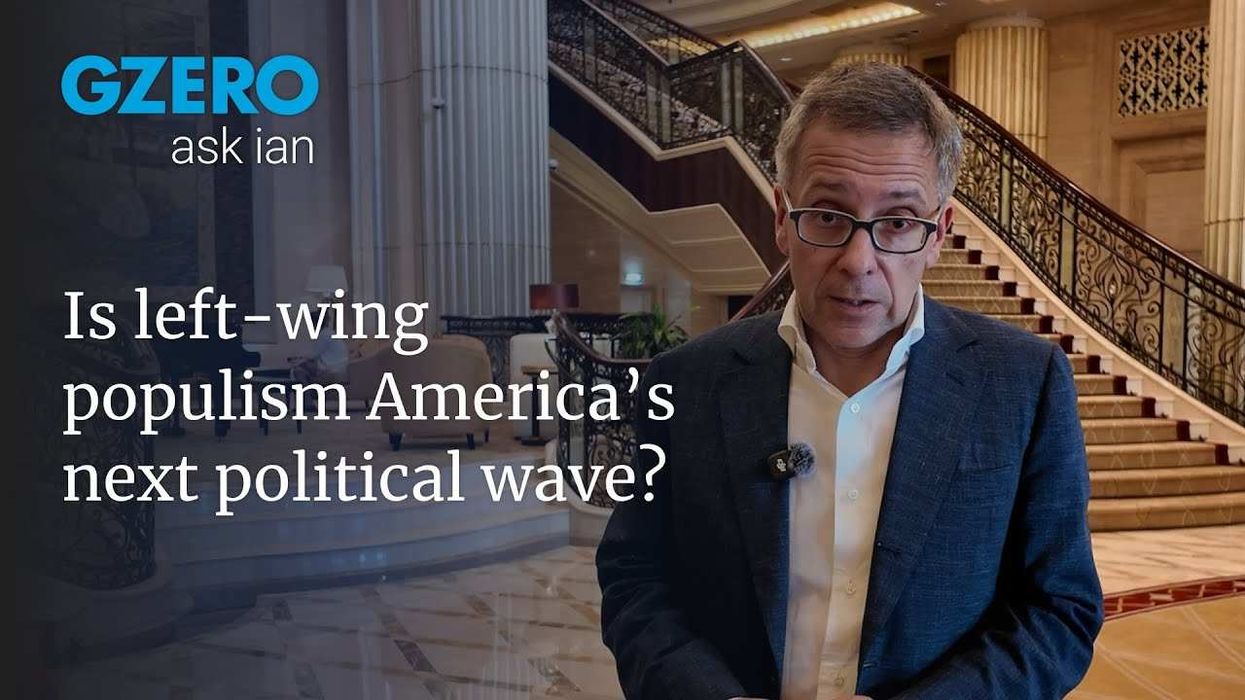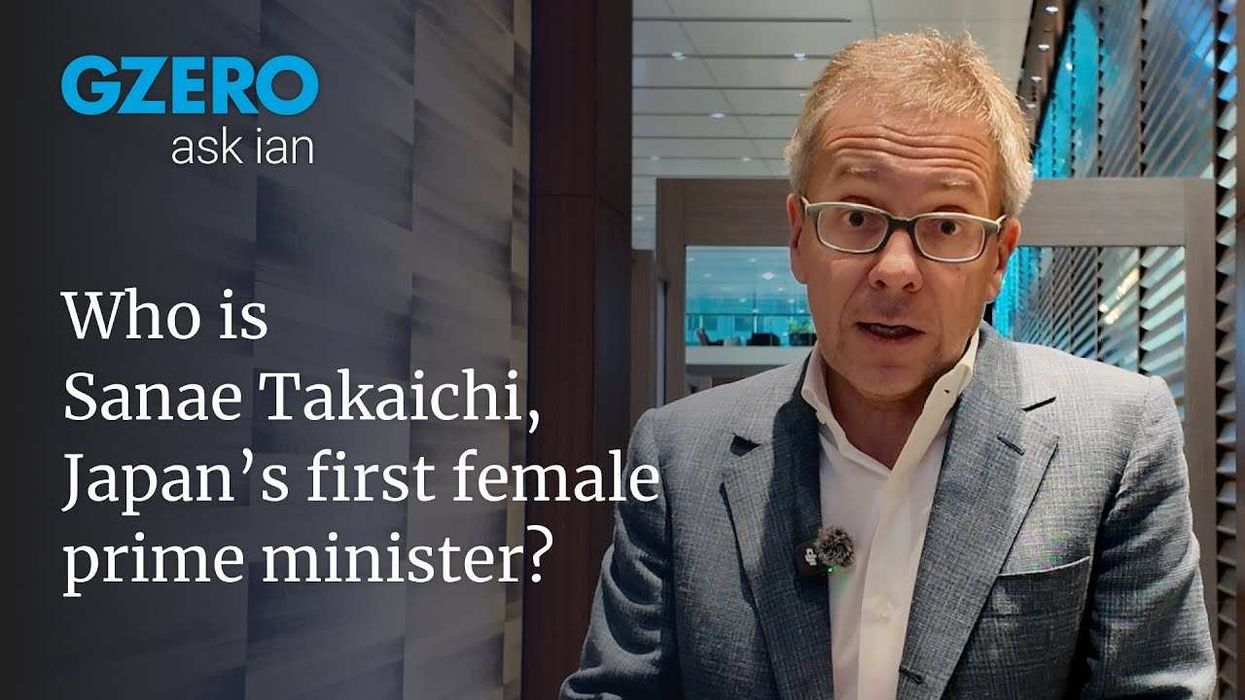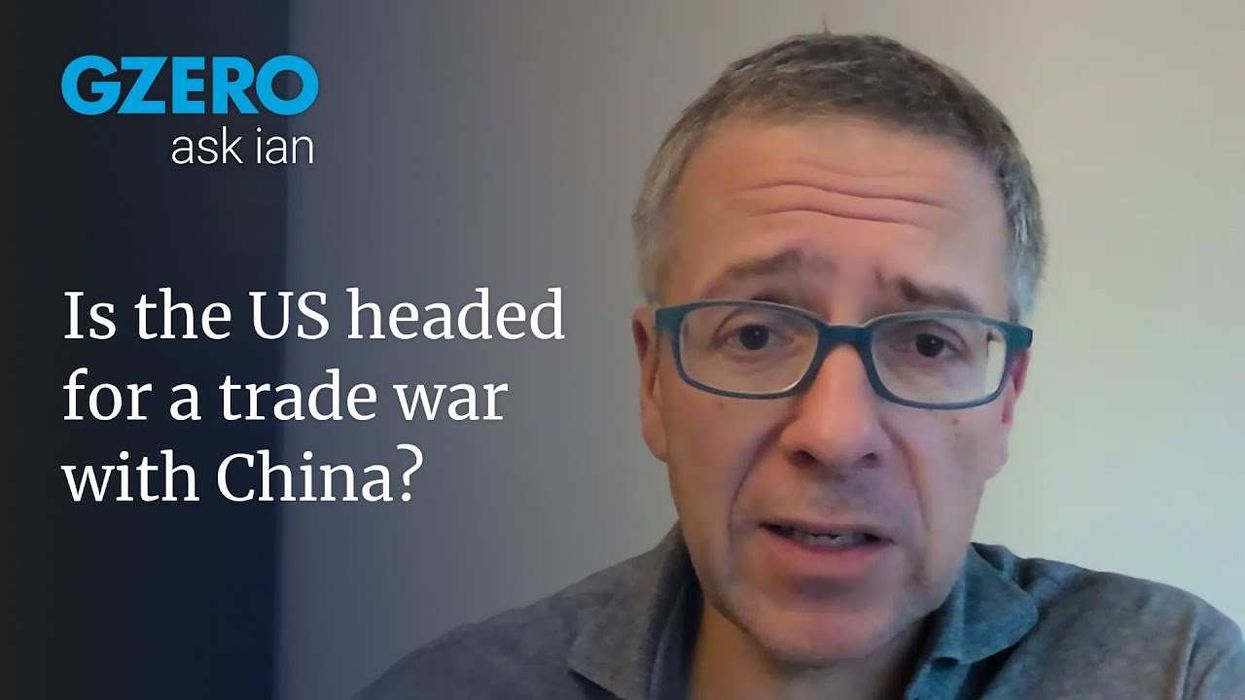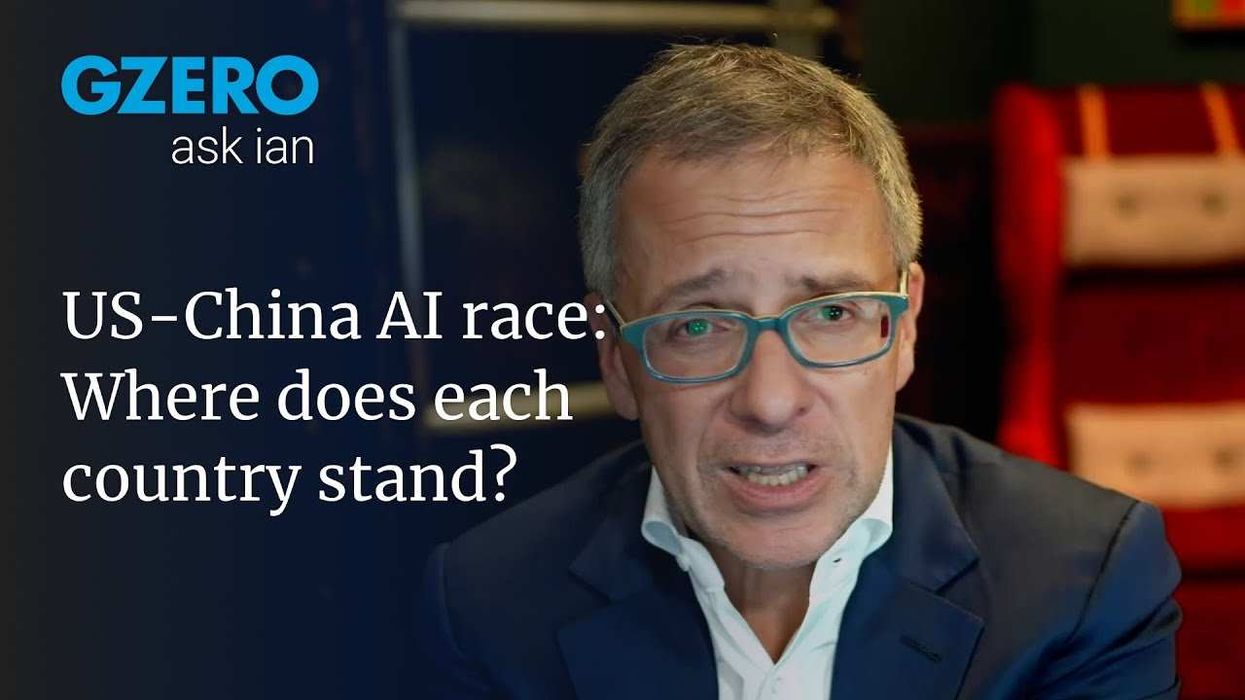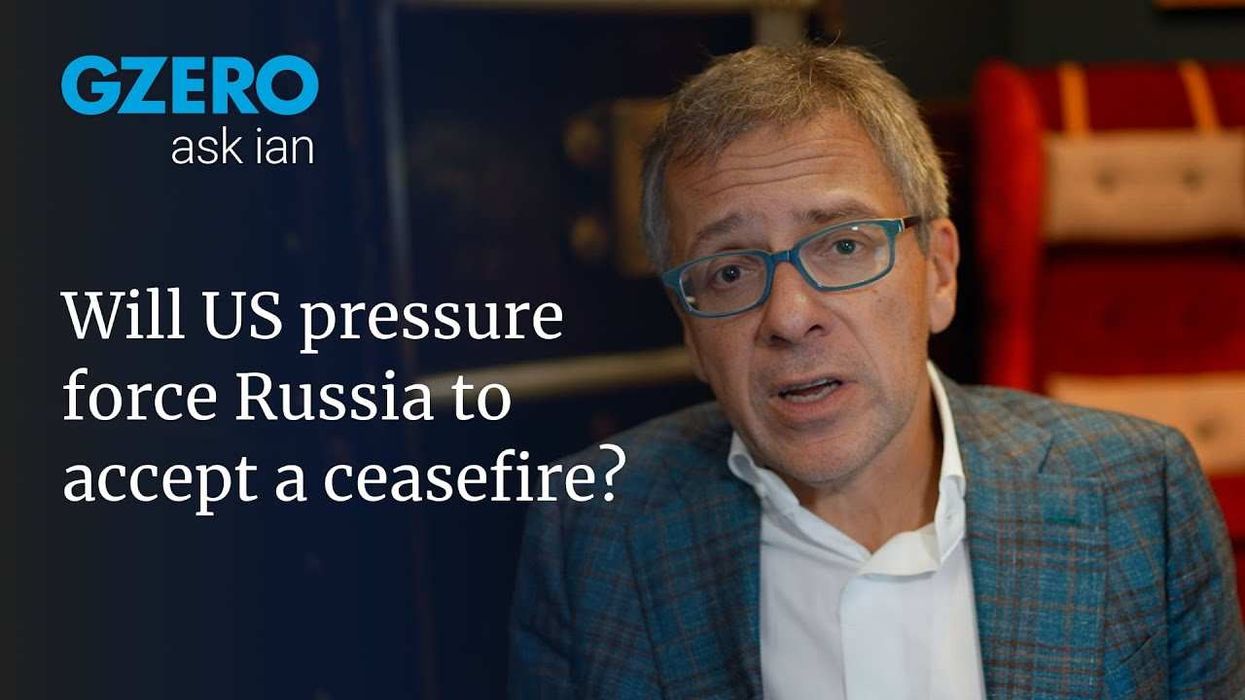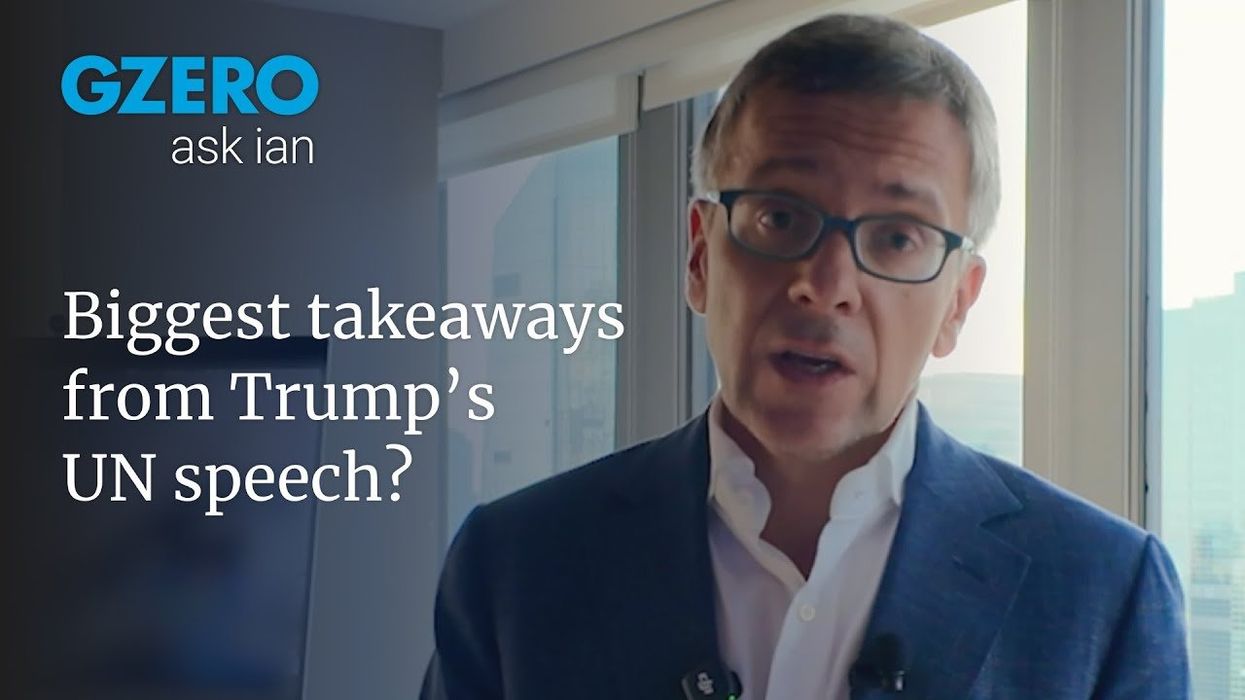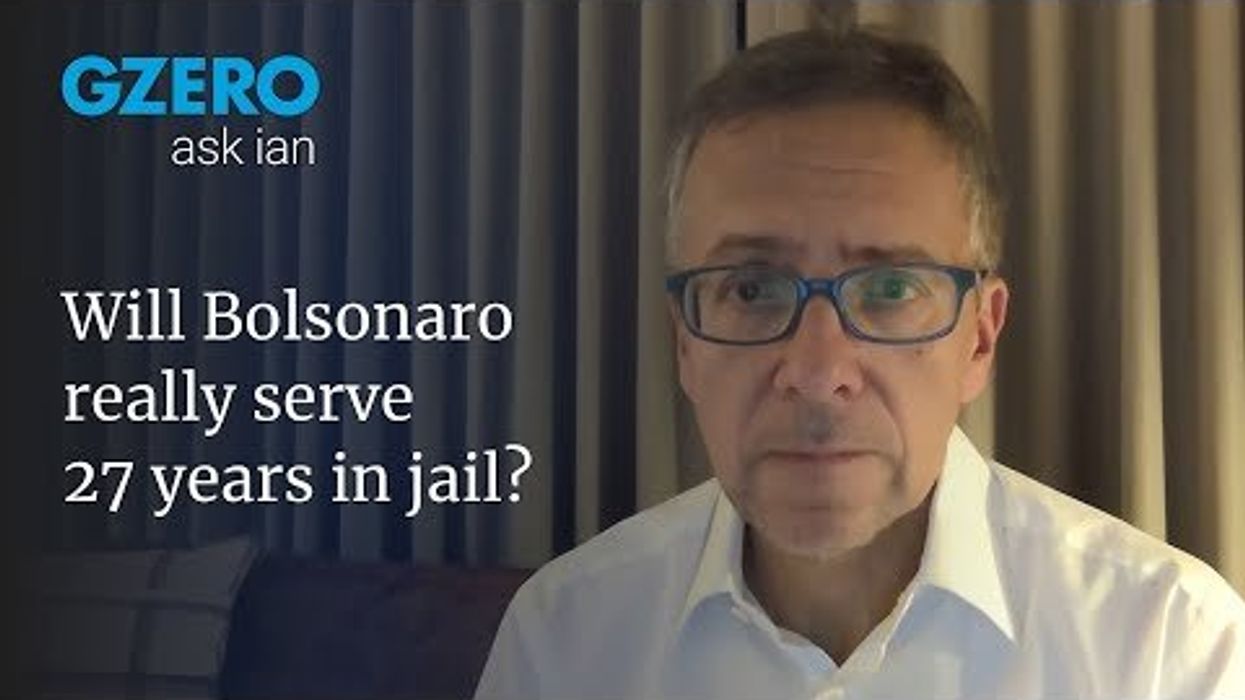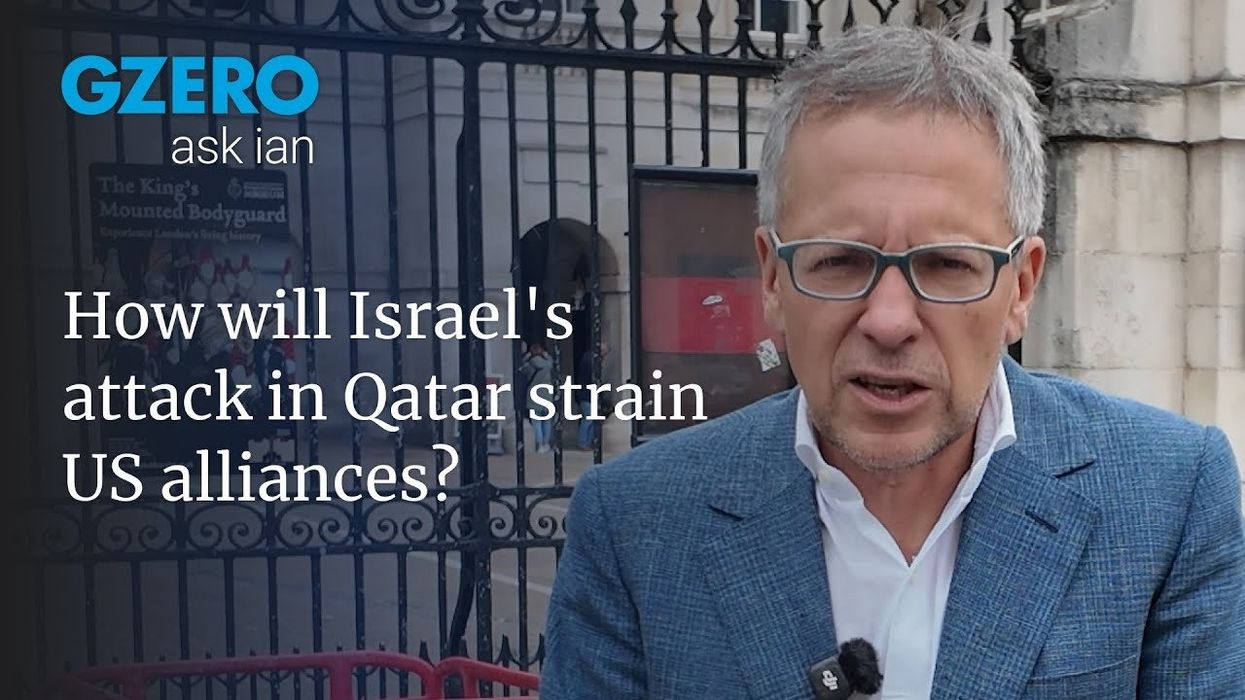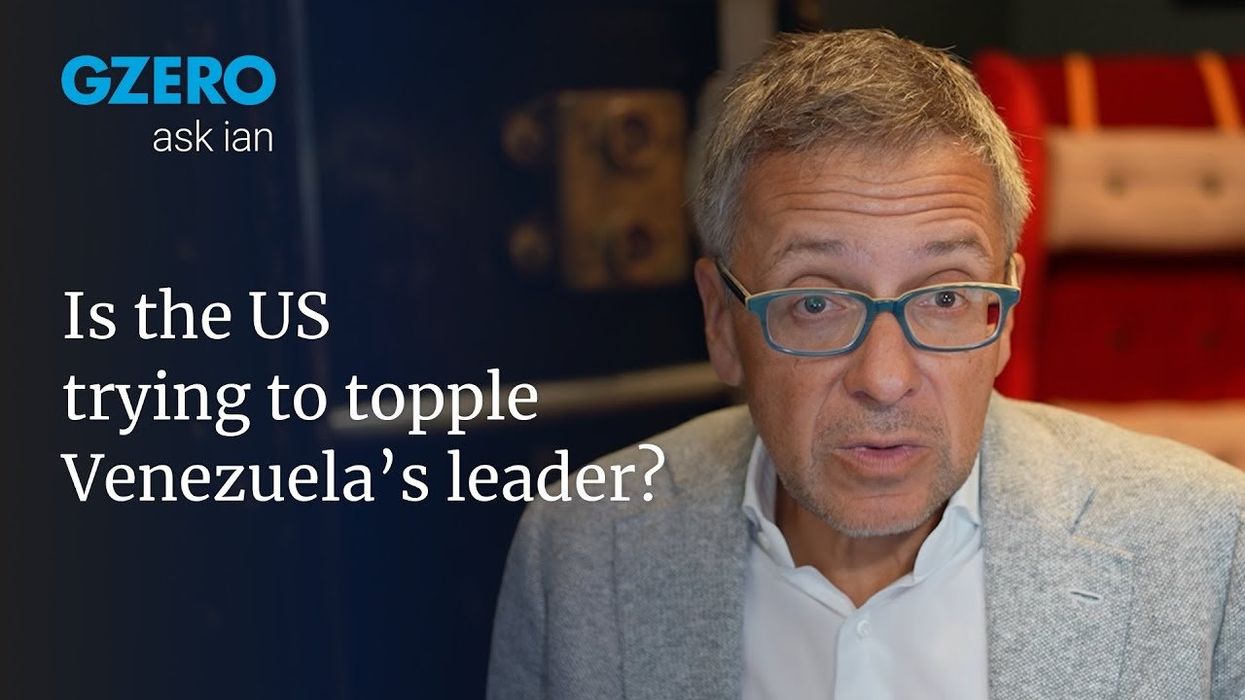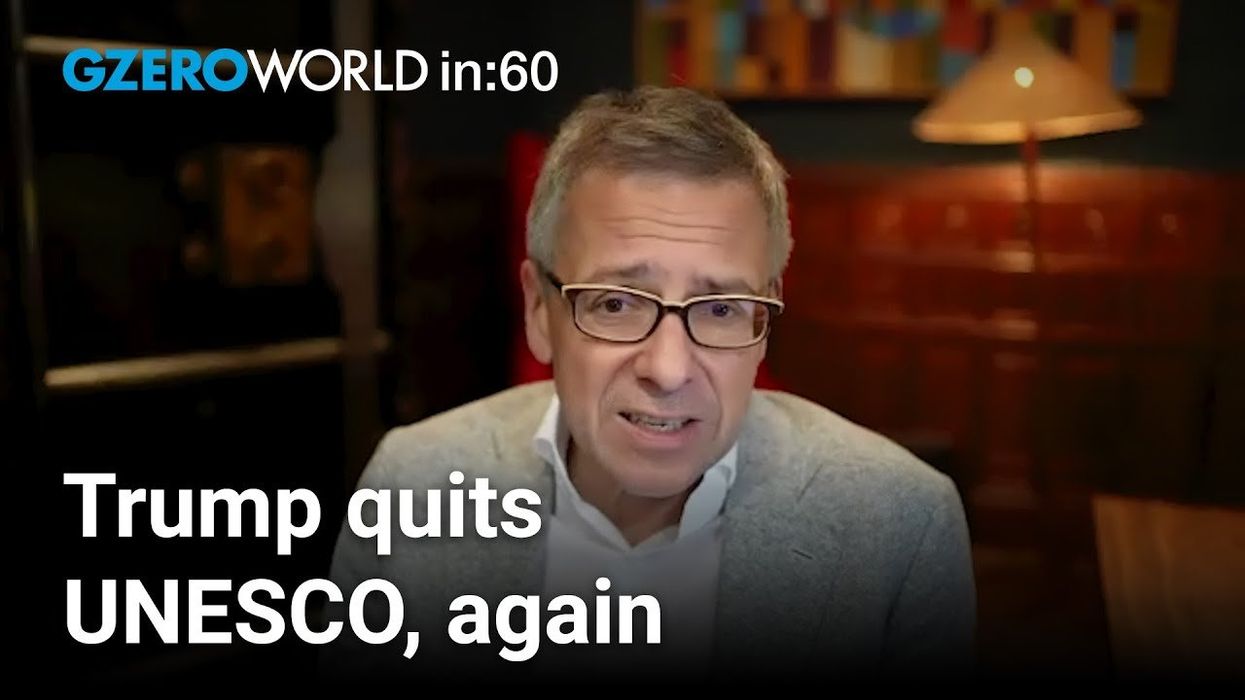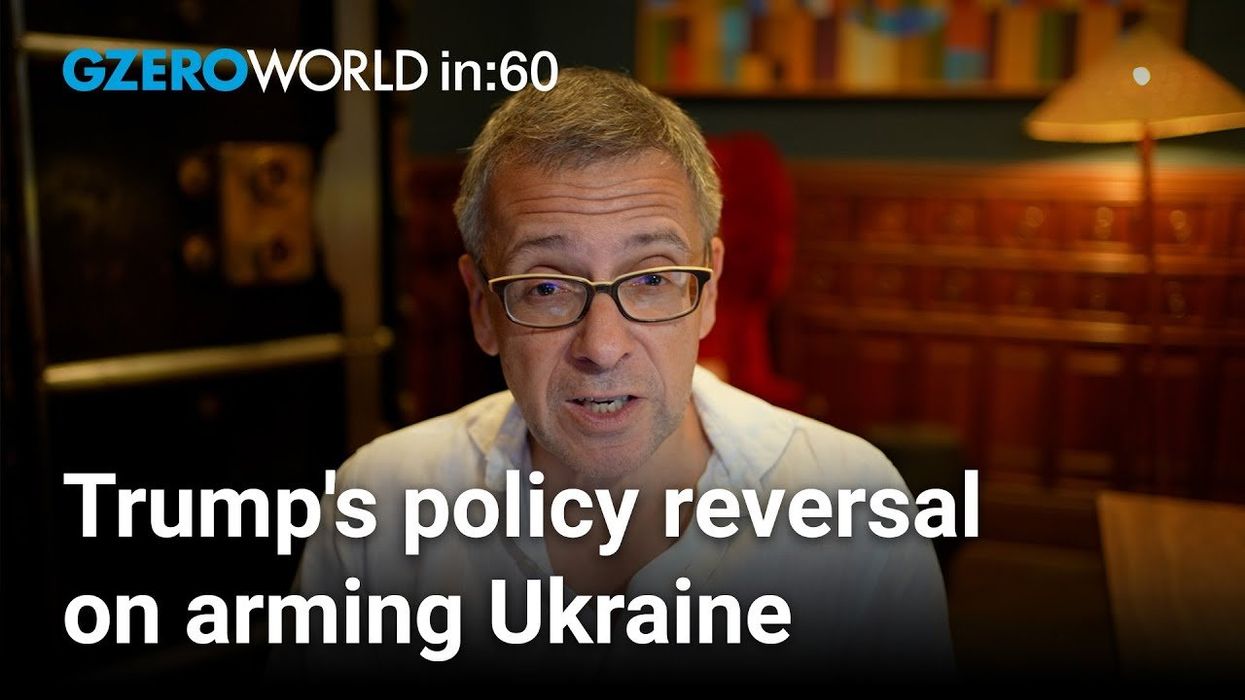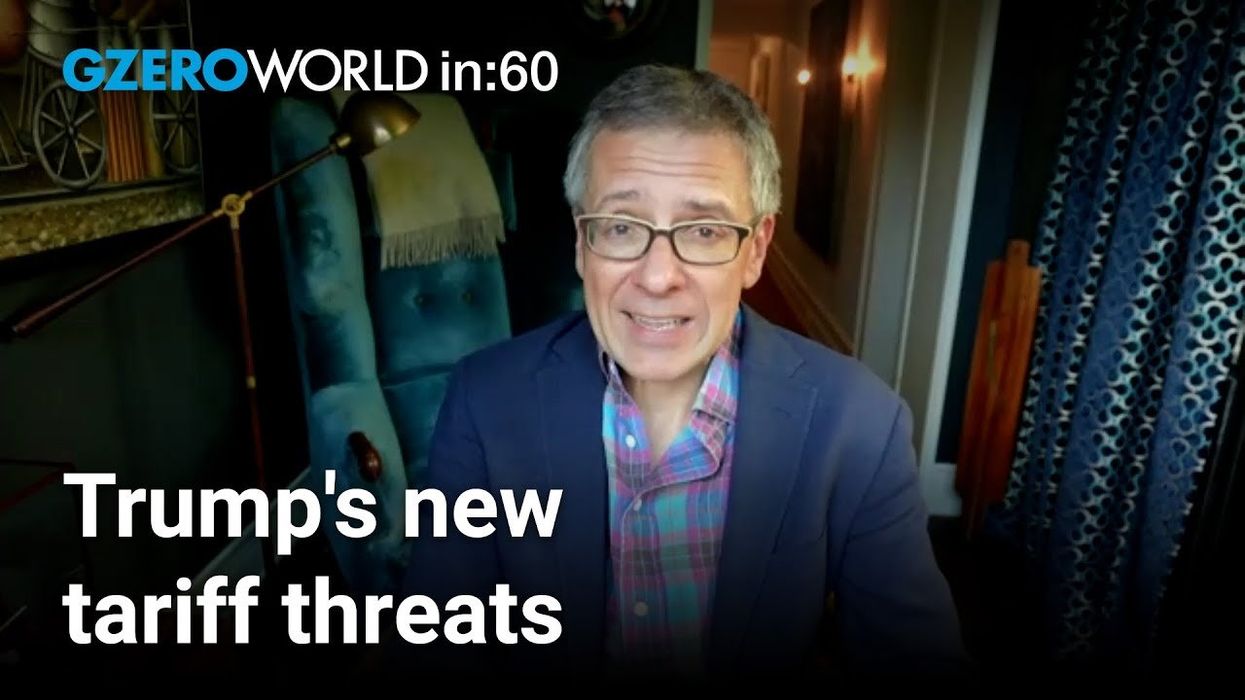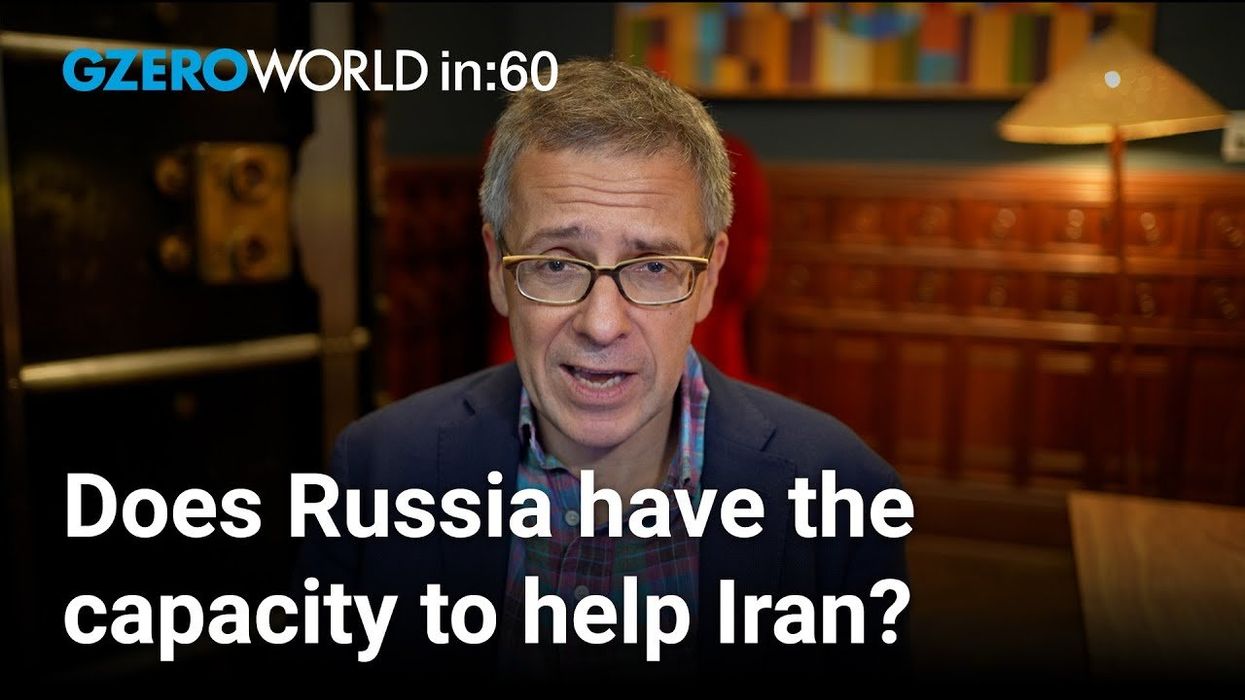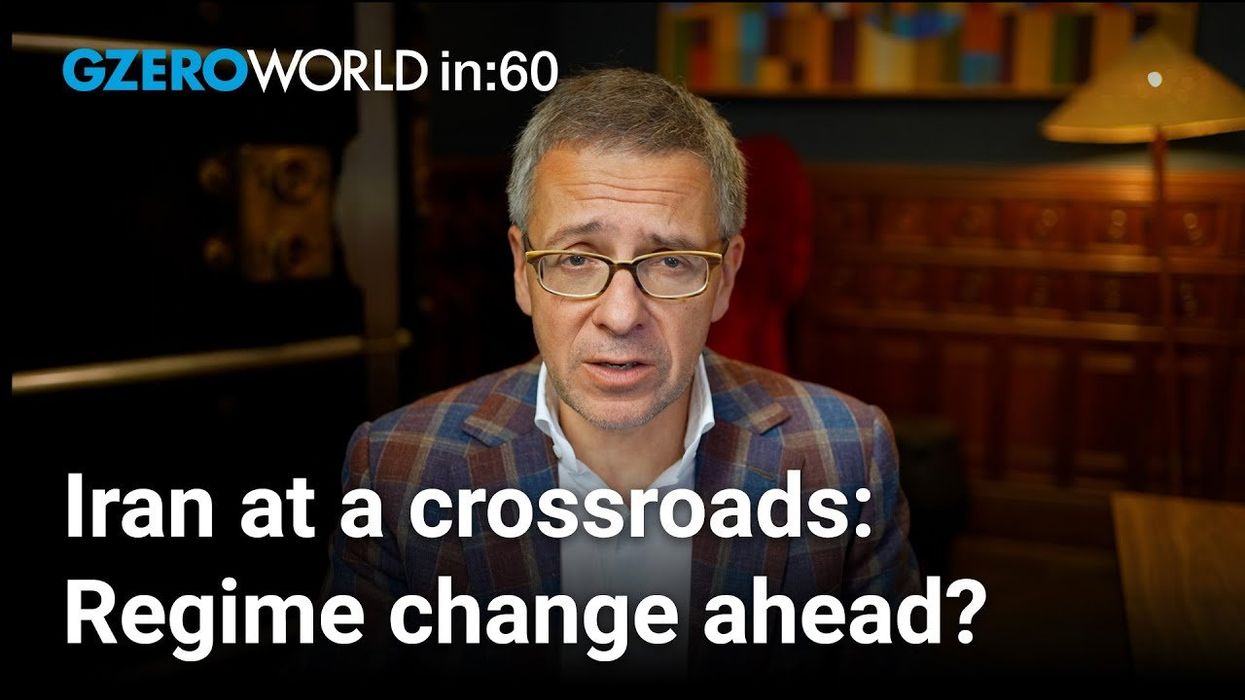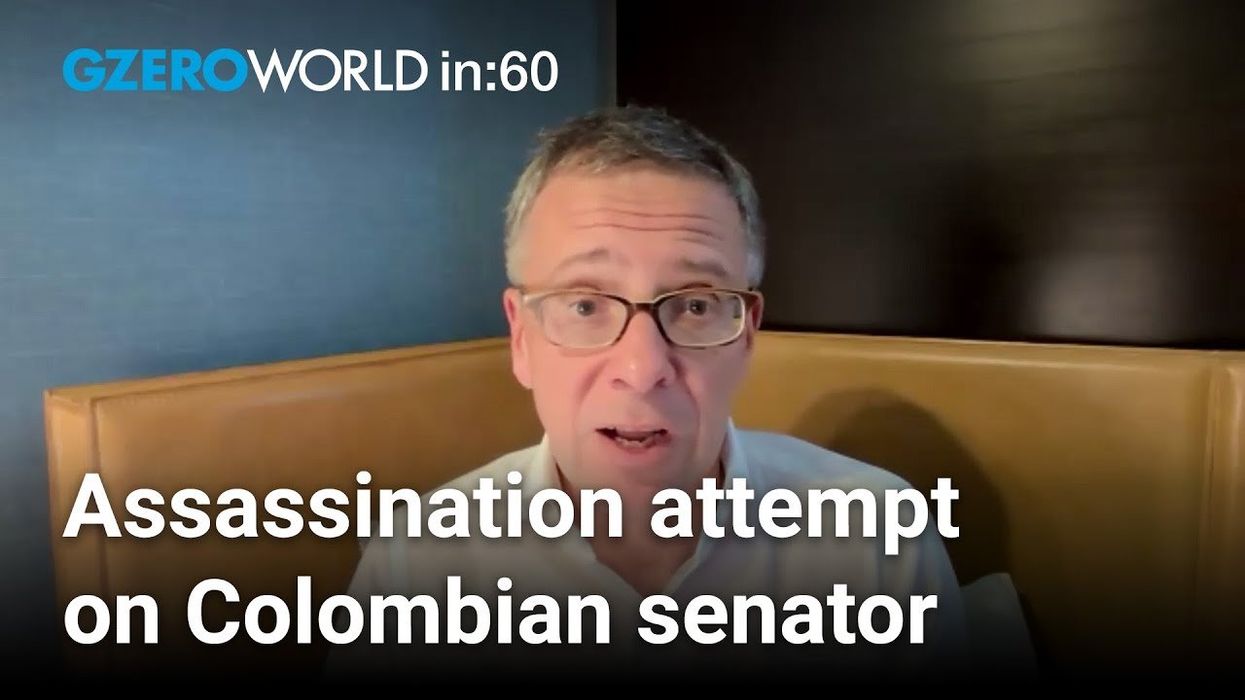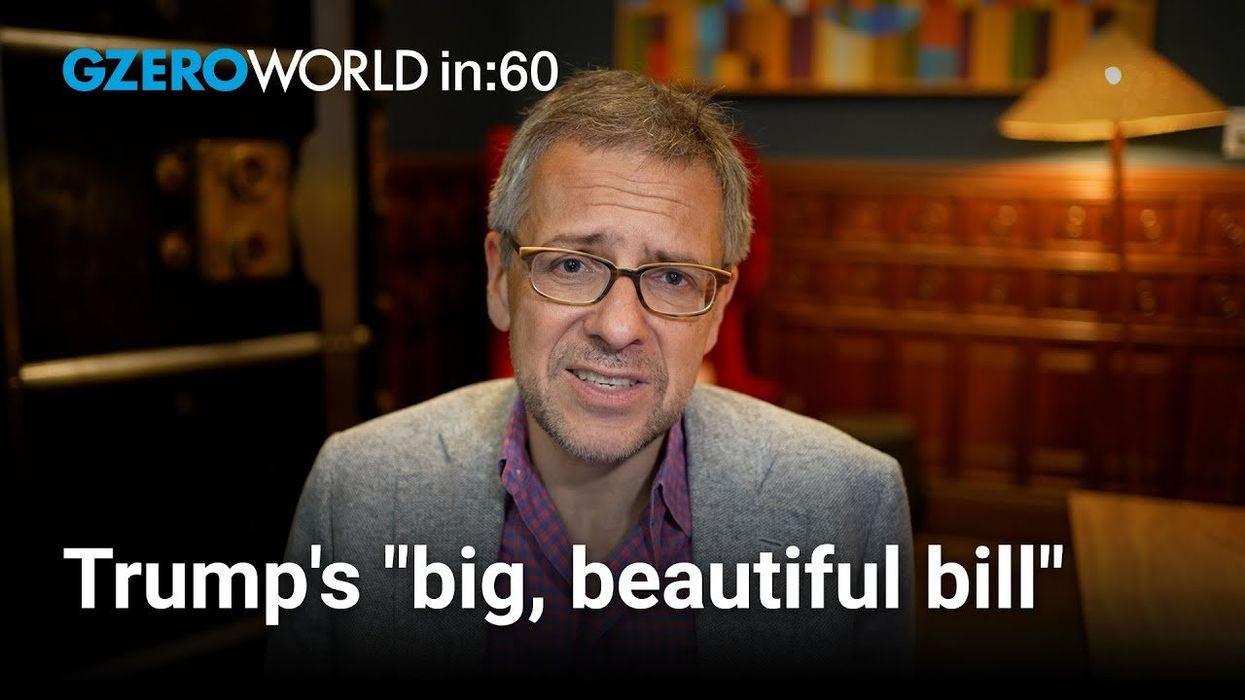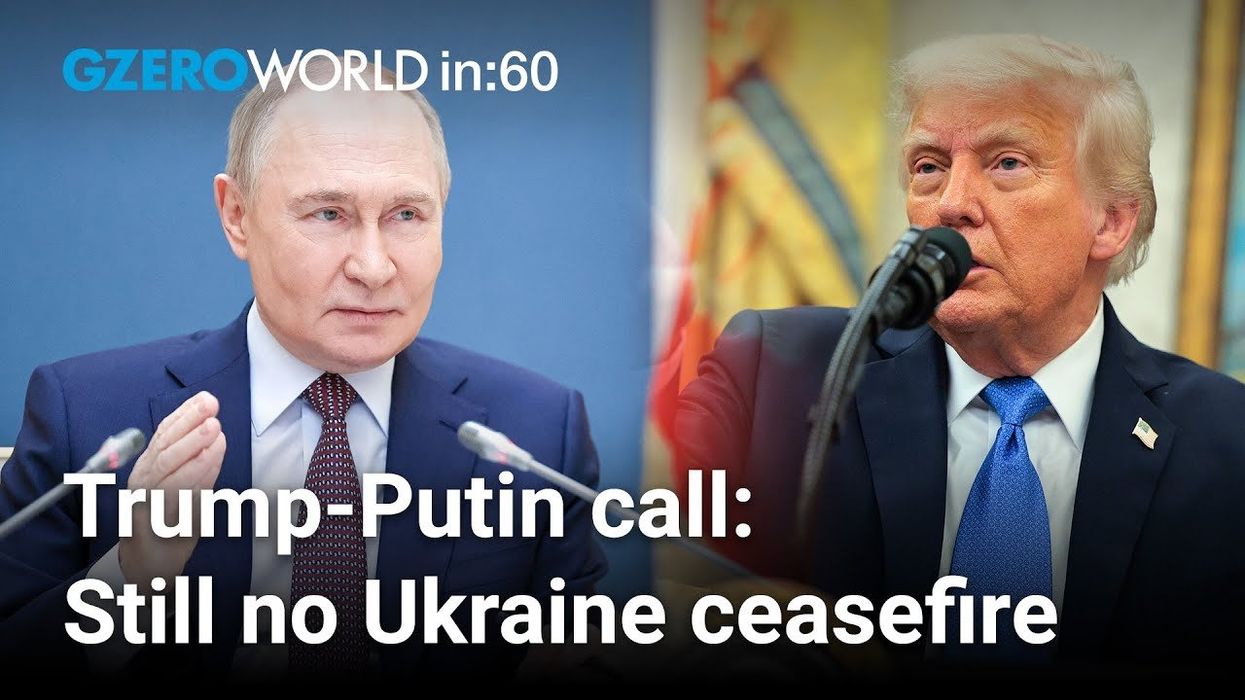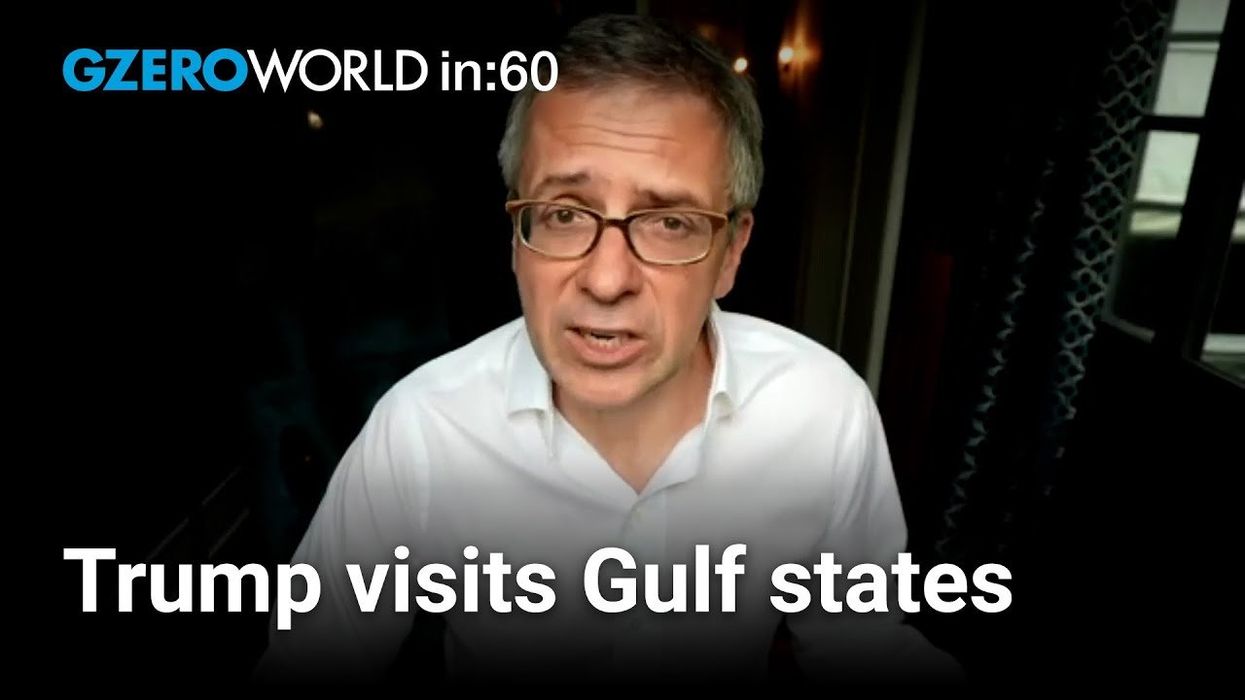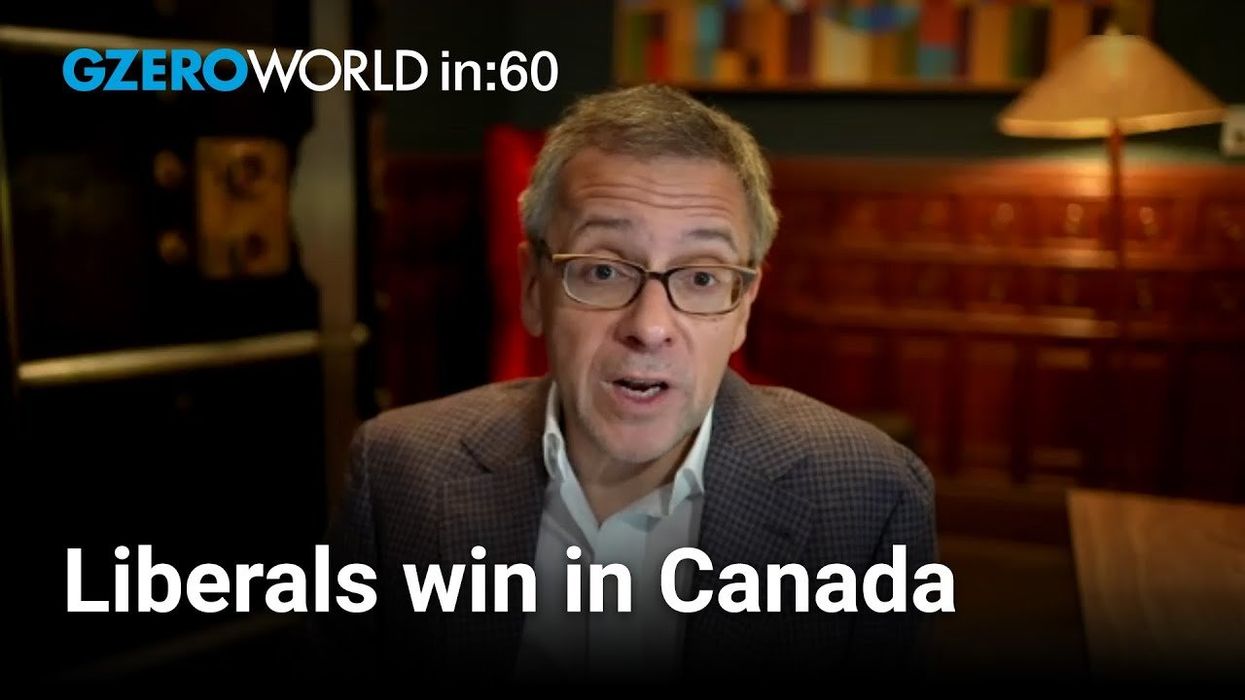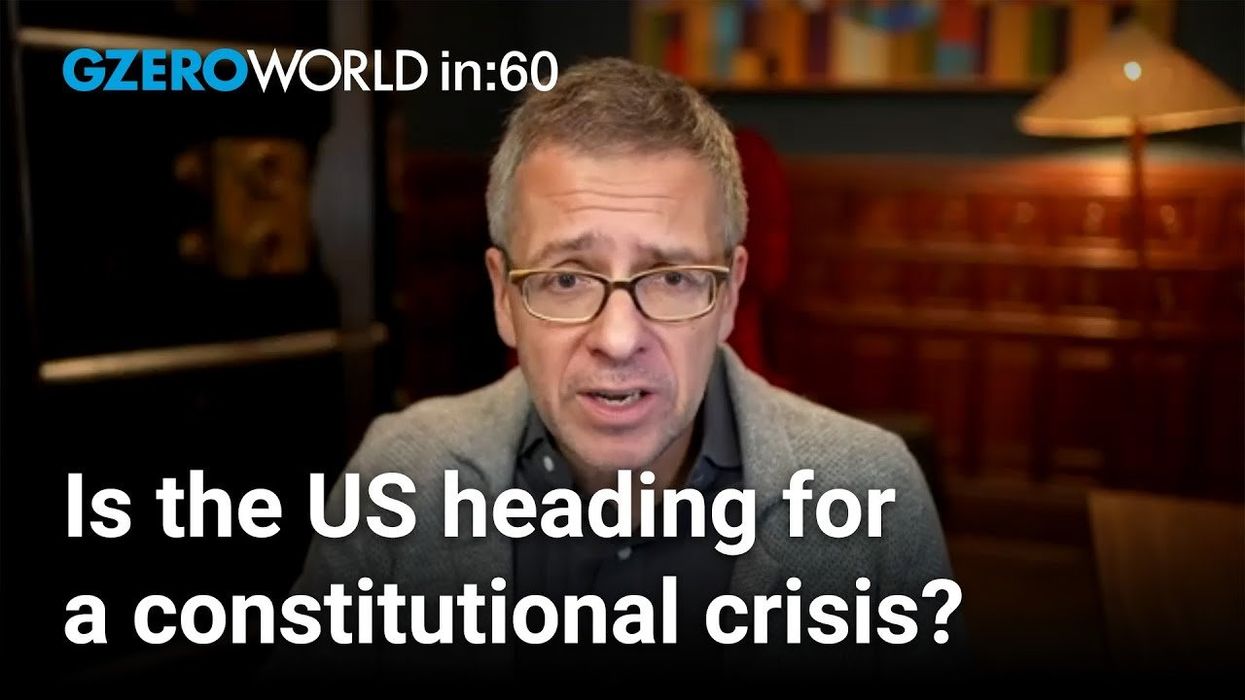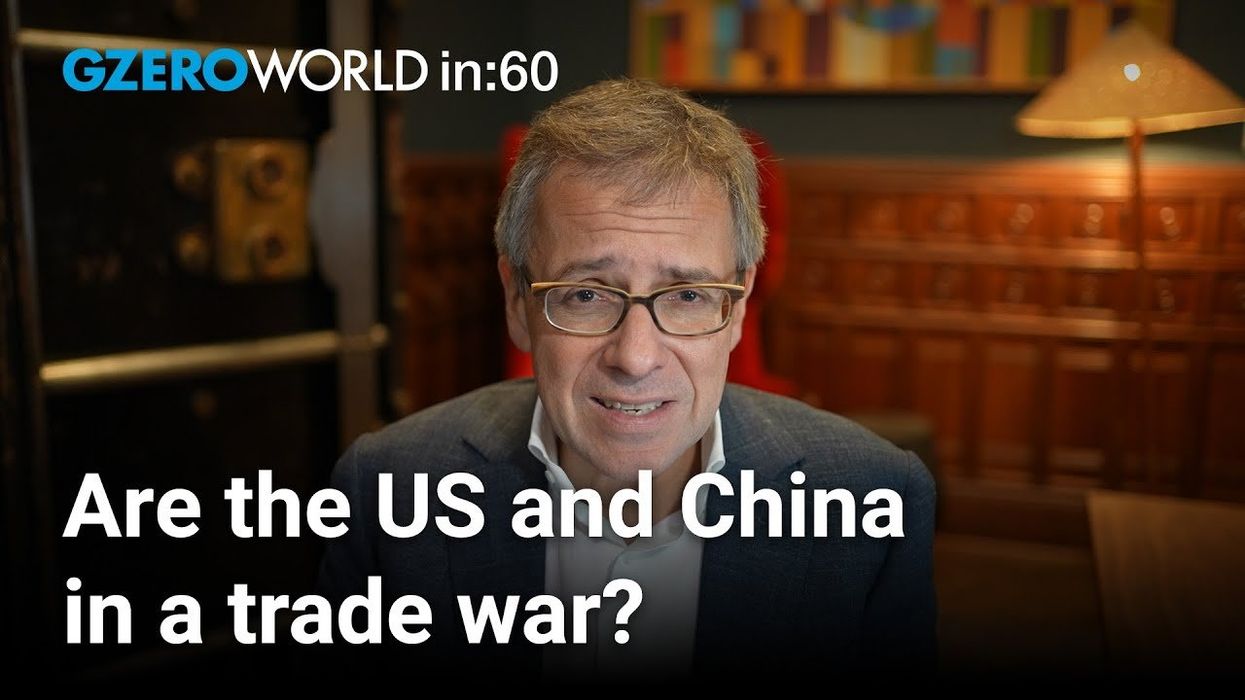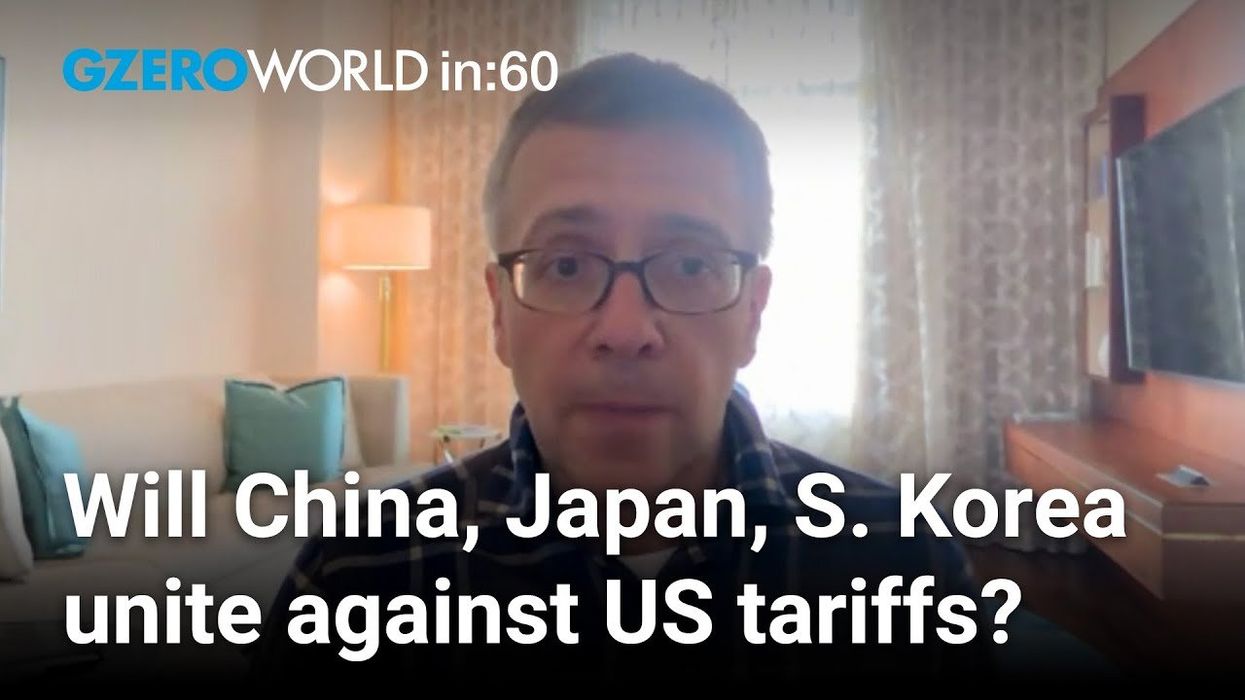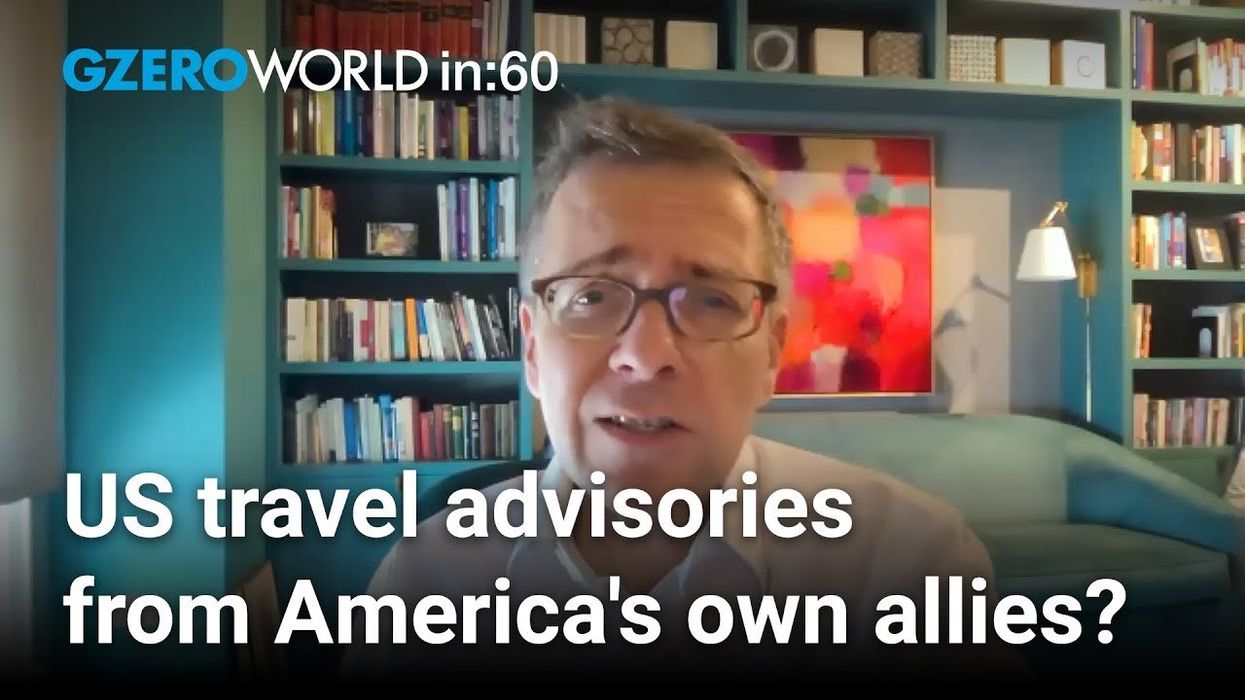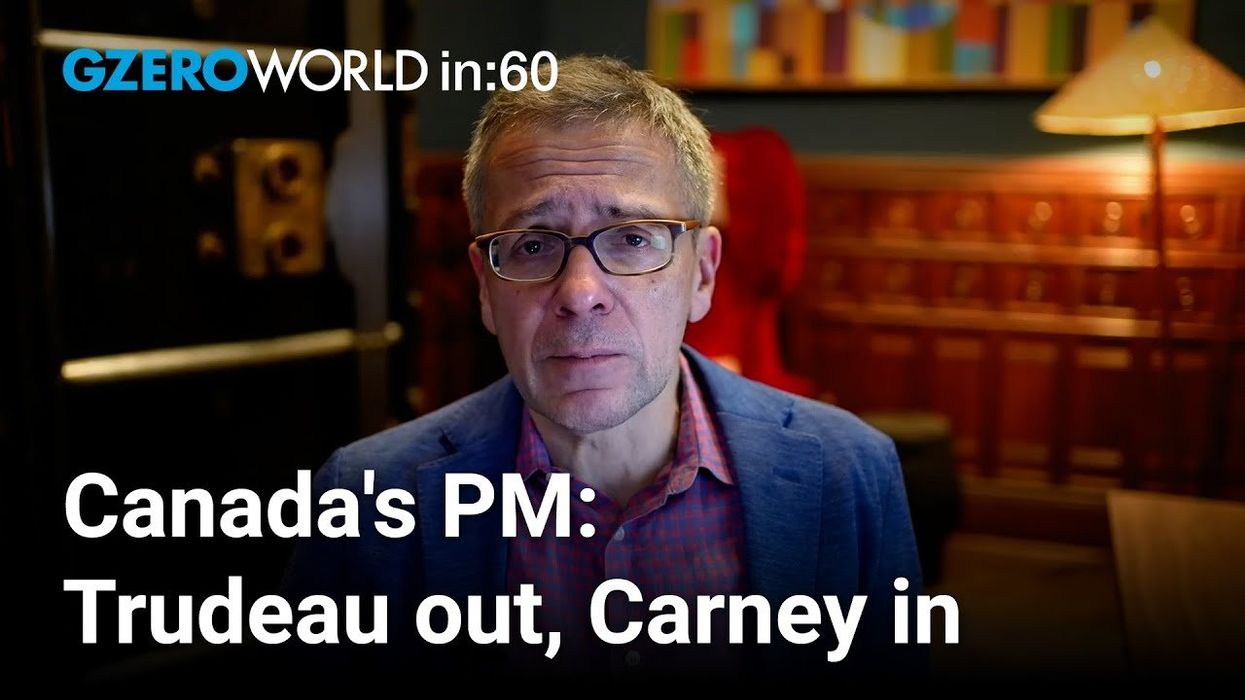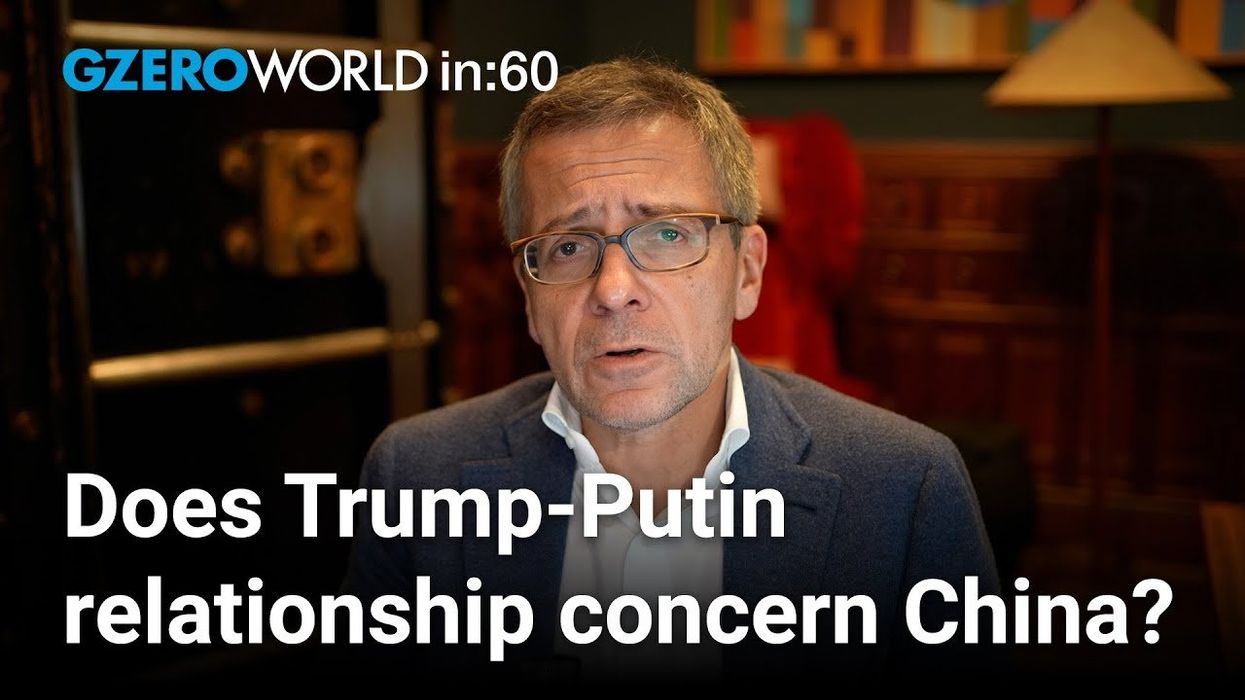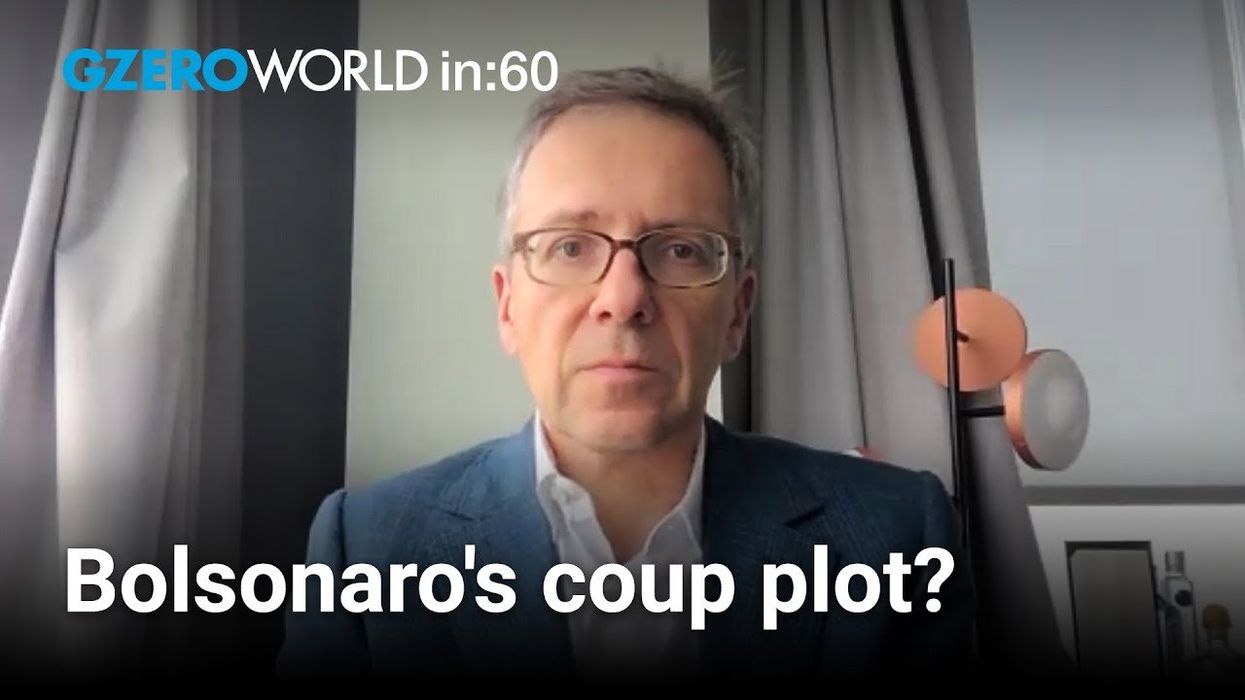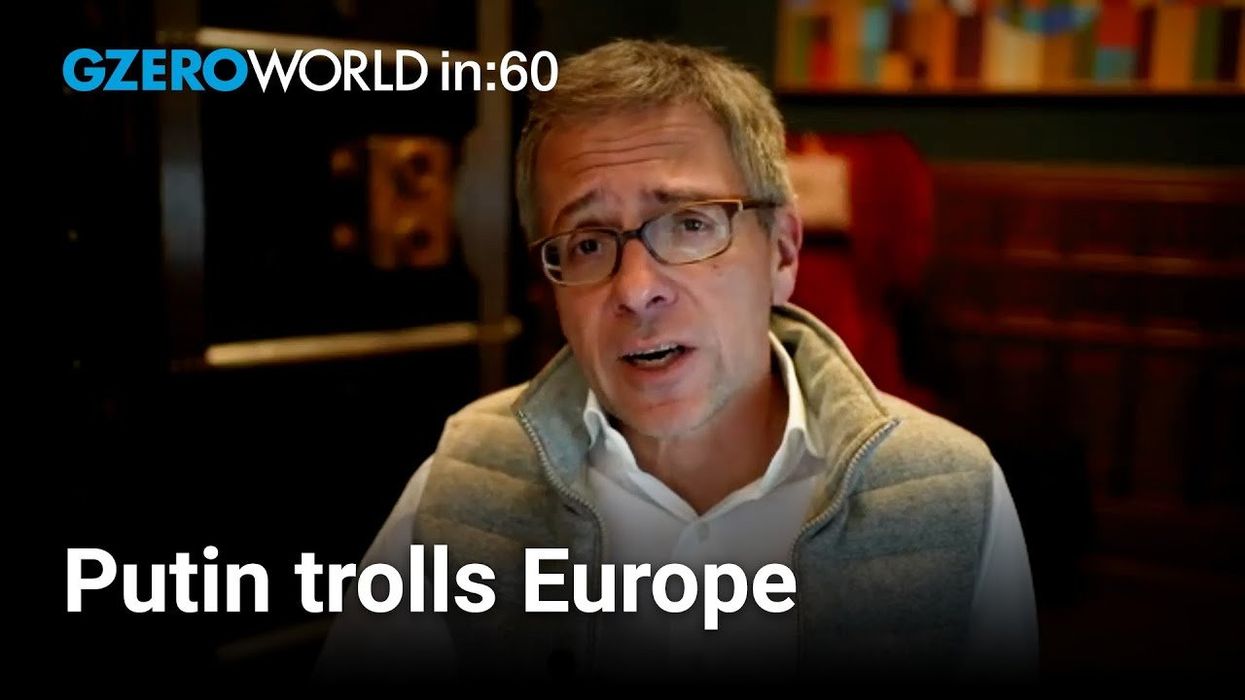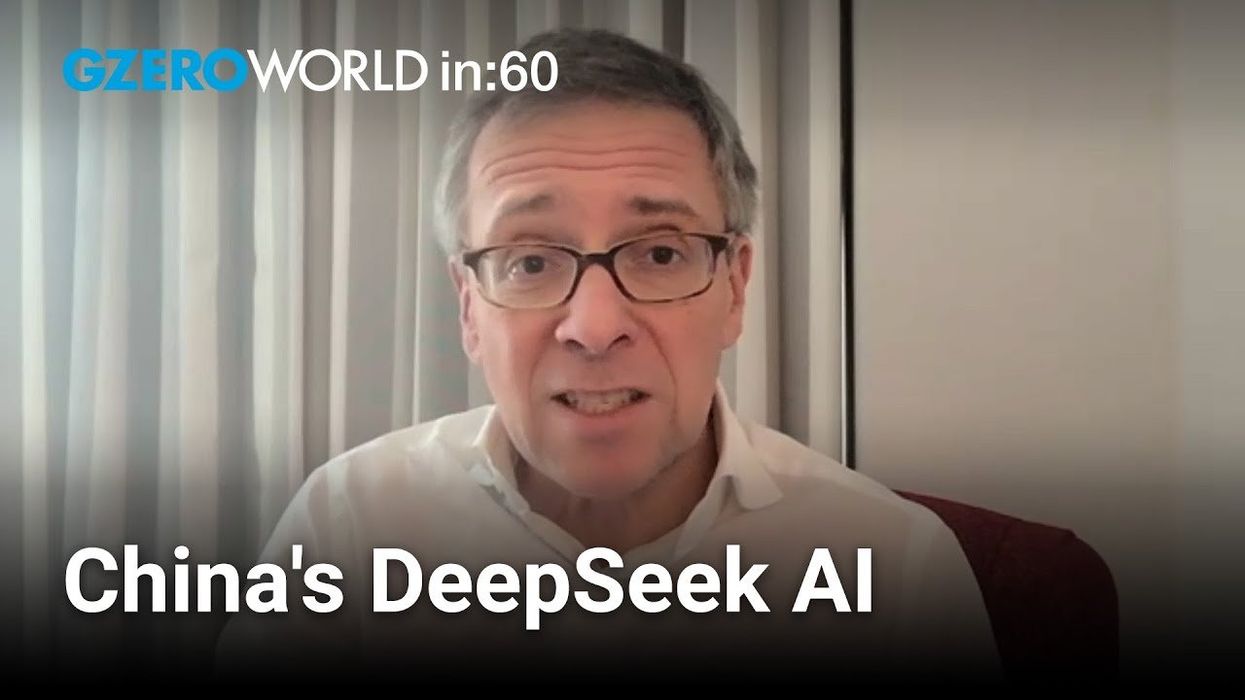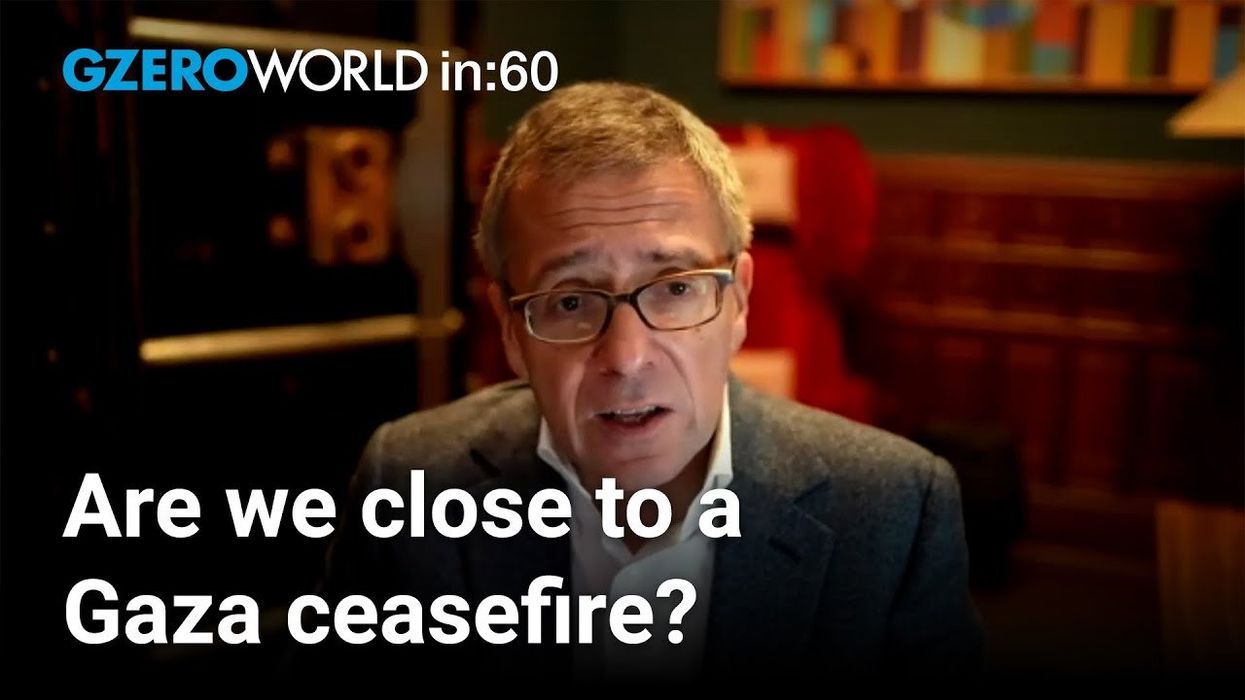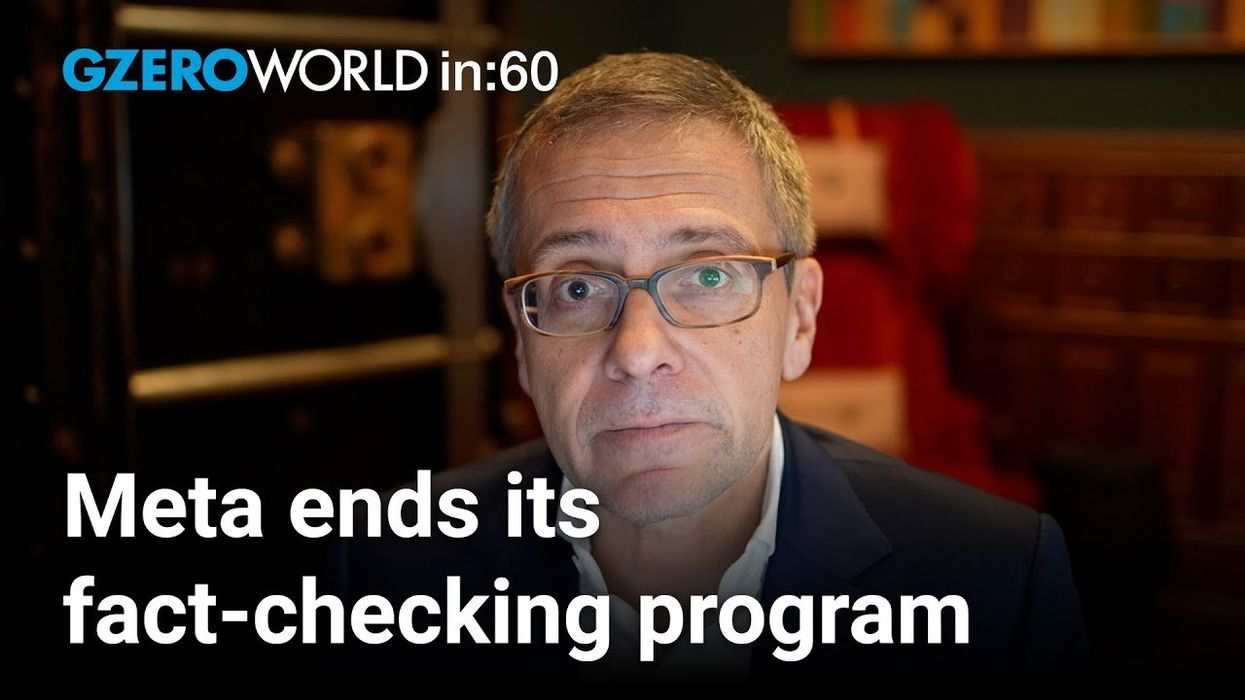VIDEOSGZERO World with Ian BremmerQuick TakePUPPET REGIMEIan ExplainsGZERO ReportsAsk IanGlobal Stage
Site Navigation
Search
Human content,
AI powered search.
Latest Stories
Sign up for GZERO Daily.
Get our latest updates and insights delivered to your inbox.
Global Stage: Live from Davos
WATCH
After Austrian Chancellor Nehammer's meeting with Putin, will more peace talks become possible? Is Shanghai's lockdown a humanitarian crisis? With the US inflation rate rising to 8.5%, what will happen if imposing further sanctions against Russia? Ian Bremmer shares his insights on global politics this week on World In :60.
After Austrian Chancellor Nehammer's meeting with Putin, will more peace talks become possible?
Was the first time a foreign leader from Europe actually met Putin in person in the seven weeks since the war has occurred. Did not go anywhere, no optimism, lots of war crimes, and the Russians are sending more troops into the Donbas as we speak. It seems pretty clear that Putin intends to declare victory. And before that happens, it is hard to imagine any utility of further negotiations. Doesn't mean you can't try. But I think we have to wait, frankly, until the military situation on the ground plays out more fully and then perhaps we might be able to get some form of frozen conflict or ceasefire. That's kind of where we are right now.
Is Shanghai's lockdown a humanitarian crisis?
Yeah, I think it is. 27 million people that are locked down, one of the world's largest cities, the wealthiest in China, and they can't leave their apartments. If there is one case in a large compound, that's it. It's incredible that they're able to test as effectively as they are and there have been some food shortages, but certainly nobody is starving. The fact that children have been separated from families, I would consider that a humanitarian crisis. There is some good news.There are some therapeutics that look to be about as effective as Pfizer's that are China made. And that means that in relatively short order you should be able to produce those at scale. That would make a huge difference. Maybe by the end of third quarter, you could have tens of millions of doses, and that could allow the Chinese to move away from zero-COVID, but they refuse to use Western vaccines. They have the tools right now that are available. They refuse to use them. I think when a government does that and forces this kind of hardship on its citizens, I consider that to be humanitarian crisis.
With the US inflation rate rising to 8.5%, what will happen if imposing further sanctions against Russia?
Well, first of all, the Americans have pretty much cut off the Russians completely. About all the sanctions the US can put on economically are there. The Europeans can cut off oil. They probably will. Gas, that'll take longer. But in terms of US engagement with Russia it's there. So I don't see further economic sanctions from the US mattering very much. Also, keep in mind, American inflation's higher than European inflation. Most American inflation of what we're experiencing now happened before the Russian invasion not after, in large part because of the pandemic and because of the massive US spend. That trillions and trillions of dollars in the hands of businesses and average Americans meant that more, it meant that the wages have gone up. It means that more people have some savings. It means that people could get through the two years of stop, start, stop, start of the US economy. But also means highest inflation levels we've had in 40 years. And I think that's going to persist. The Russia crisis isn't making it any easier, but it's not the largest piece of why we're experiencing inflation right now.
Keep reading...Show less
More from ask ian
Trump–Zelensky meeting at Mar-a-Lago
December 29, 2025
Is the US heading toward military strikes in Venezuela?
December 22, 2025
Trump, loyalty, and the limits of accountability
December 16, 2025
Notre Dame, politics, and playing by their own rules
December 08, 2025
Trump threatens regime change in Venezuela
December 02, 2025
Is Trump’s trade strategy backfiring abroad?
November 25, 2025
Ian stands in line for a bagel, the internet melts down
November 21, 2025
Could Trump have handled the Epstein issue any worse?
November 17, 2025
Democrats divided over government shutdown deal
November 11, 2025
Zohran Mamdani and America's political future
November 04, 2025
Trump, Xi, and the new US–China standoff
October 14, 2025
US-China AI race: Dueling strategies and potential risks
October 07, 2025
Trump shifts on Russia: From carrots to sticks in Ukraine war
September 30, 2025
Trump’s UN speech: Sovereignty, security, and ending wars
September 23, 2025
Israel attacks and targets Hamas leadership in Qatar
September 10, 2025
US strike on vessel from Venezuela
September 03, 2025
Trump pulls US out of UNESCO, again
July 22, 2025
Trump announces new plan to arm Ukraine
July 15, 2025
Are NATO allies aligned on Iran?
June 24, 2025
Will Iran’s regime survive?
June 18, 2025
Trump-Musk rift over Trump's "big, beautiful bill"
June 04, 2025
What is Trump after in his latest Gulf states tour?
May 13, 2025
Why Mark Carney’s victory won’t heal the US-Canada rift
April 29, 2025
Trump tariff is starting a US-China trade war
April 08, 2025
What if Japan & South Korea sided with China on US tariffs?
April 01, 2025
US travel warnings issued by its closest allies
March 25, 2025
US-Canada trade war helps Mark Carney's election prospects
March 11, 2025
Why Trump won’t break the Putin-Xi alliance
March 04, 2025
Will Trump & Musk punish Brazil over Bolsonaro indictment?
February 19, 2025
Putin trolls Europe about "the master" Trump
February 04, 2025
DeepSeek puts US-China relations on edge
January 30, 2025
Gaza ceasefire likely as Biden and Trump both push
January 14, 2025
Meta scraps fact-checking program: What next?
January 07, 2025
GZERO Series
GZERO Daily: our free newsletter about global politics
Keep up with what’s going on around the world - and why it matters.

